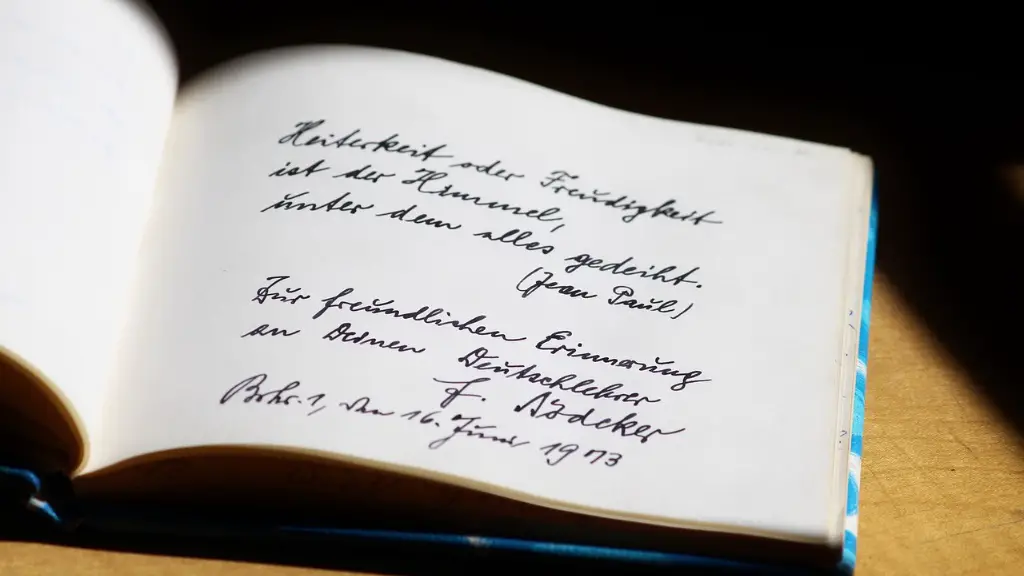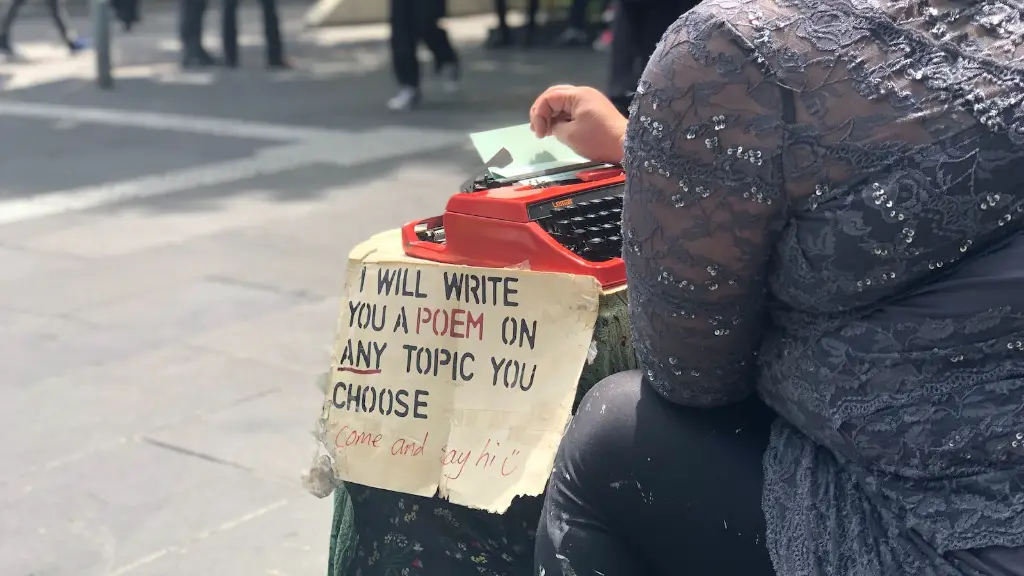Overview of Slam Poetry
Slam poetry is a relatively new spoken word art form where poets have the opportunity to perform their poetry in front of a live audience. It is a competitive, performance art where poets are judged on the content and delivery of their work. Slam poetry was developed in the late 1980’s by construction worker and poet Marc Smith in Chicago, and today is heavily practiced in both competitive and non-competitive forums. It has fast become one of the most popular types of poetry in the world.
Competition Format
Traditional competitive slam poetry events are hosted in two rounds and the most common scoring system is called the 10 point system. For each round, poets are given 3 minutes to perform their work and depending on a judge’s ratings of their performance, each poet is awarded points on a scale of 0-10. Topics for slam poetry can be about anything but are typically focused on personal experiences, emotions, and stories. At the end of the two rounds, the poets with the highest collective score wins the competition.
Performance Style
Slam poets generally make a show of their words, often incorporating their own body language, facial expressions, and hand movements. Poets will often ask the audience to clap or cheer along with their words and to participate in the performance. This makes slam poetry a very engaging art form, since the audience can interact with the poem in ways they might not with a regular reading. This also makes it a very powerful form of poetry as it allows poets to draw upon their personality and performance skills to bring their words to life.
The Slam Poetry Community
The slam poetry community is composed of like-minded poets and performance artists who come together to compete and share ideas. These events tend to be organized by poetry collectives or communities, which often provide a space for poets to practice their works and participate in poetry slams. Because poetry slams are so inclusive and accessible, the slam poetry community is growing and becoming more widespread, with poetry slams happening all over the world.
The Arts Scene
Slam poetry has become a prominent part of the arts scene. It is often featured on television shows, in movies, and on popular music albums. It is also gaining attention in higher education institutions with increasingly popular slam poetry clubs. Furthermore, a growing number of organizations are doing outreach to promote the power of spoken word art forms. This includes hosting open mic nights, providing workshops, offering educational materials, and bringing slam poets together from all over the world to share their work.
Benefits of Slam Poetry
Slam poetry offers many benefits to poets, from the opportunity to speak their minds to the chance to compete for prizes at poetry slams. It also helps poets to express their feelings in a creative way and can be a great way for them to connect with other poets and explore their craft. For audiences, slam poetry provides an opportunity to experience something different, to connect with the poet, and to gain insight into the issues they discuss.
Criticism of Slam Poetry
Although slam poetry is gaining popularity, it is not without its criticism. Some question the focus on competitive events, saying it takes away from the intention of poetry and that it puts too much emphasis on performance, while diminishing the quality of the work. Others point to the prevalence of vulgar language and themes in slam poetry, which they believe detracts from the art form.
Conclusion
Slam poetry has become a popular art form, one in which poets can express themselves, compete with others, and gain attention and recognition for their work. It’s a great way to connect with the audience, entertain them, and bring deeper thoughts and feelings to the forefront. Although there are some criticisms, slam poetry is gaining attention and more will continue to gravitate toward the art form and appreciate it for the spoken word art that it is.


